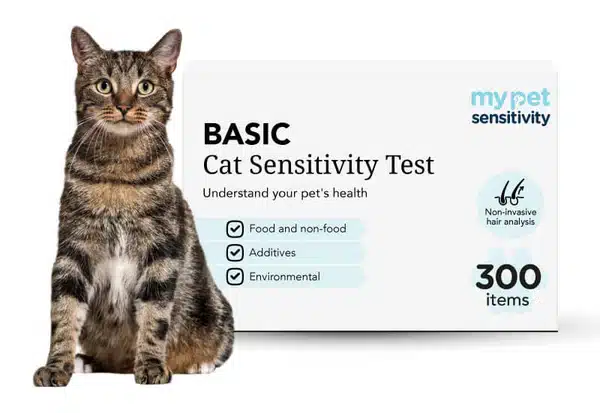iHeartCats is reader-supported. When you buy via links on our site, we may earn an affiliate commission at no extra cost to you.
In the age of advanced genetics, understanding the roots of your feline companion has never been easier or more precise. Cat DNA tests have rapidly evolved to provide a wealth of information that goes far beyond mere breed identification. Whether you’re interested in uncovering potential genetic health risks, decoding quirky behaviors, or simply satisfying your curiosity about your cat’s ancestry, a DNA test can be a fascinating and insightful investment.
This article aims to guide you through the top options available in the market, helping you choose the best cat DNA test for your specific needs.
Best DNA & Allergy Tests for Cats
#1 – Basepaws Cat DNA Test Kit – Comprehensive Breed, Health, and Dental Analysis Across 114 Traits for Accurate and Easy-to-Use Genetic Insights
The Basepaws Cat DNA Test Kit is a comprehensive genetic testing kit that provides insights into a cat’s breed composition, traits, and health. It screens for 114 traits and 64 health markers associated with 43 diseases, helping cat owners make proactive choices to support their cat’s health. Additionally, the kit provides a free dental health report to assess a cat’s risk for dental issues and provide personalized care recommendations.
Best For: Cat owners who want comprehensive breed, health, and dental analysis for their cats.
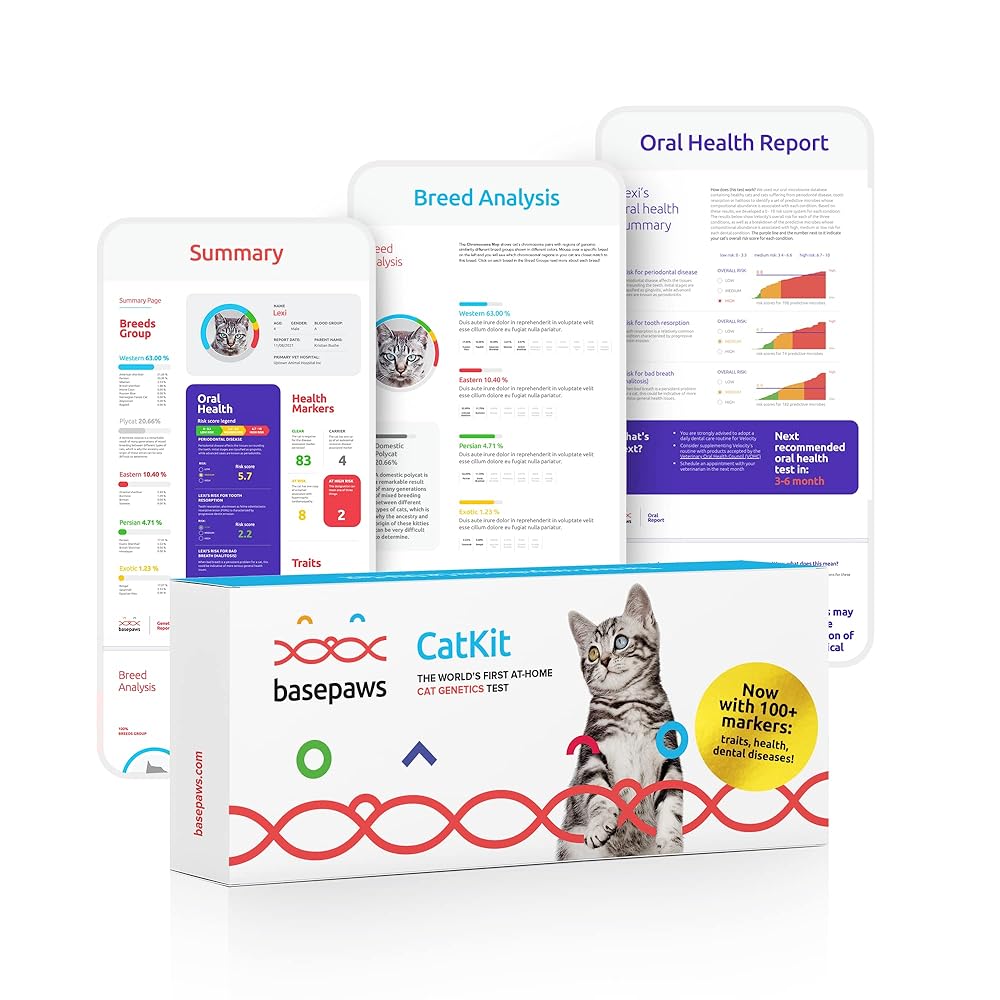
#2 – My Pet Sensitivity Basic Cat Sensitivity Test
Introducing the My Pet Sensitivity Test for cats, a revolutionary product for devoted cat owners who want the very best for their feline friends. This cutting-edge test kit allows you to identify hidden sensitivities and intolerances that may be affecting your cat’s health and happiness. By simply collecting a hair sample, you’ll receive a detailed report outlining potential food and environmental triggers. This essential information empowers you to make informed choices about your cat’s diet and lifestyle, ensuring a more joyful and healthier life for your cherished pet.
With the My Pet Sensitivity Test for cats, you can eliminate the guesswork and reduce unnecessary vet visits. Many cat owners have uncovered the underlying causes of their pet’s discomfort, from persistent itching to digestive issues, and have successfully adapted their care to address these sensitivities. This test not only provides peace of mind but also significantly enhances your cat’s quality of life. Embrace a future where your feline companion thrives, free from the discomfort of unknown sensitivities. Your cat deserves nothing less!
EXCLUSIVE OFFER: Get 10% off when you use coupon code: HEARTDOGS
Best For: Pet parents who want to identify and remove food intolerances from their cat’s diet, improving their health.
Get 10% off when you use coupon code: HEARTDOGS
#3 – Basepaws Whole Genome Sequencing Test | Your Cat’s Complete Genetic Information | Breed + Health Report & Oral Health Report | Free Lifetime Updates
The Basepaws Whole Genome Sequencing Test is a comprehensive DNA test for cats that provides detailed information about their genetic makeup, breed profile, and health risks. It uses whole genome sequencing technology to generate 10,000 times more data than other DNA tests, allowing for earlier detection of health issues. The test also includes a free lifetime update feature, providing ongoing information based on the latest scientific research.
Best For: Pet owners who want a thorough understanding of their cat’s genetic information, breed profile, and potential health risks.
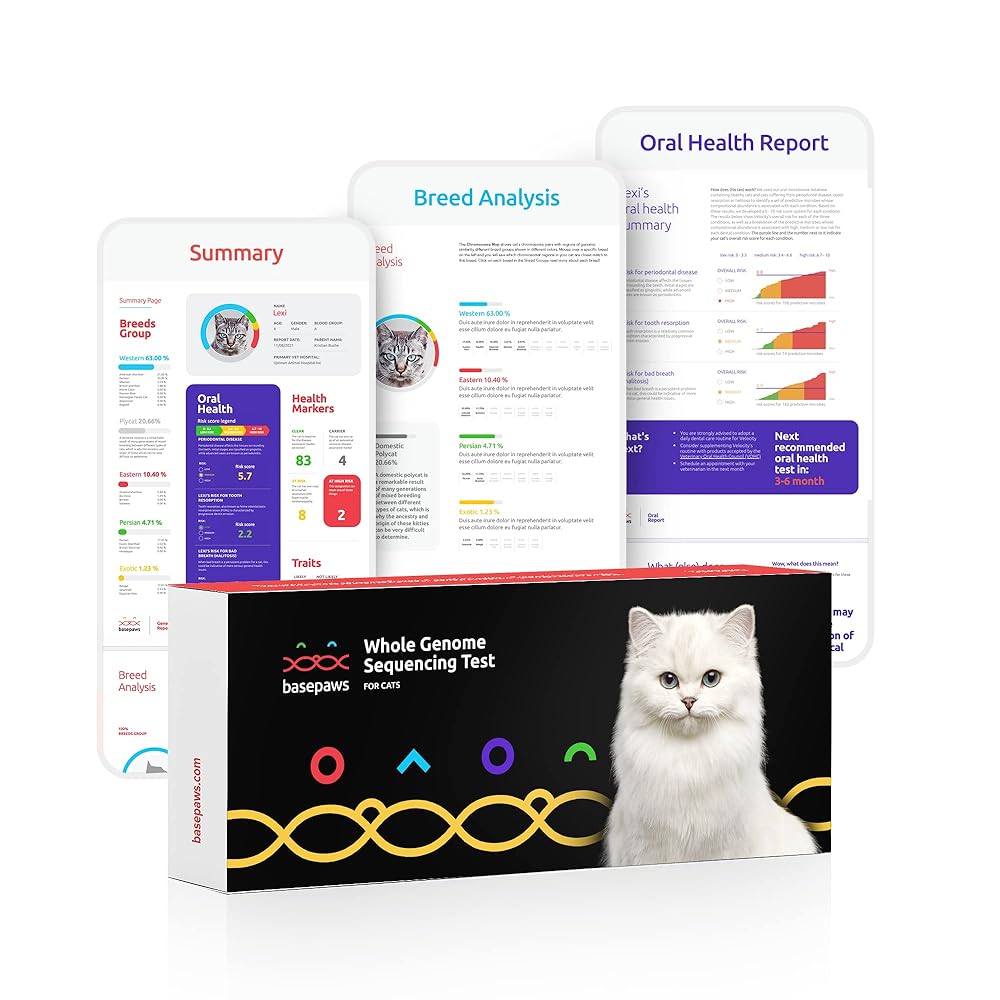
#4 – Wisdom Panel Complete: Comprehensive Cat DNA Test kit for 45 Health Genetic Health Conditions, 70+ Breeds and populations, 25+ Traits, Blood Type – 1 Pack
The Wisdom Panel Complete is a cat DNA test kit that provides information on breed, genetic health conditions, traits, and blood type. The test offers comprehensive health insights with 45 genetic health tests and helps owners understand their cat’s physical features with 25+ trait tests. It also includes a 15-minute call with a vet for advice and contributes to research for improving the health and well-being of pets.
Best For: Understanding a cat’s breed, genetic health, and traits.
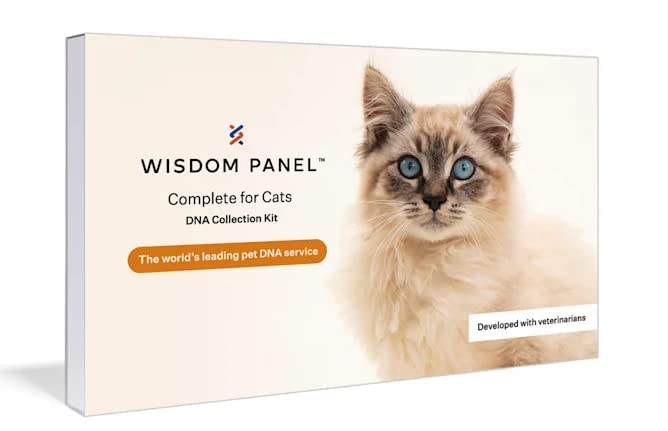
What Can a Cat DNA Test Tell Me?
A Cat DNA Test can offer a wealth of information that extends far beyond simple breed identification, although that is often a significant part of the results. Here are some key areas where a DNA test can provide insights:
- Breed Identification: One of the most obvious benefits is finding out the breeds that make up your cat’s ancestry. This can help you understand certain behaviors, traits, or predispositions.
- Genetic Health Risks: Many DNA tests screen for specific genetic markers that indicate a predisposition to certain health conditions like hypertrophic cardiomyopathy, polycystic kidney disease, and others. Knowing your cat’s genetic health risks can help you take preventive measures.
- Trait Analysis: These tests can also inform you about various traits like coat color, fur length, and patterns. While these might seem superficial, they can sometimes be linked to certain health issues or behaviors.
- Behavioral Insights: Some advanced tests aim to offer behavioral insights based on the genetic markers identified. This is a growing field and not as robust as health or breed information, but it can be an interesting area to explore.
- Relative Finder: Some DNA tests even offer a feature that allows you to connect with other cats (or rather, their owners) who share a significant amount of DNA with your pet, essentially identifying “relatives.”
- Nutritional Recommendations: Though still a developing field, some tests purport to offer dietary recommendations based on your cat’s genetic makeup. While these suggestions shouldn’t replace advice from your veterinarian, they can offer additional insights.
- Carrier Status: For those who may be considering breeding their cat, certain tests can indicate whether your cat is a carrier for specific genetic disorders, which can inform responsible breeding practices.
While cat DNA tests can provide a considerable amount of valuable information, it’s important to view them as a supplement to, not a replacement for, regular veterinary care. Consult your vet to discuss the findings and to decide on any subsequent steps in your cat’s health care plan.
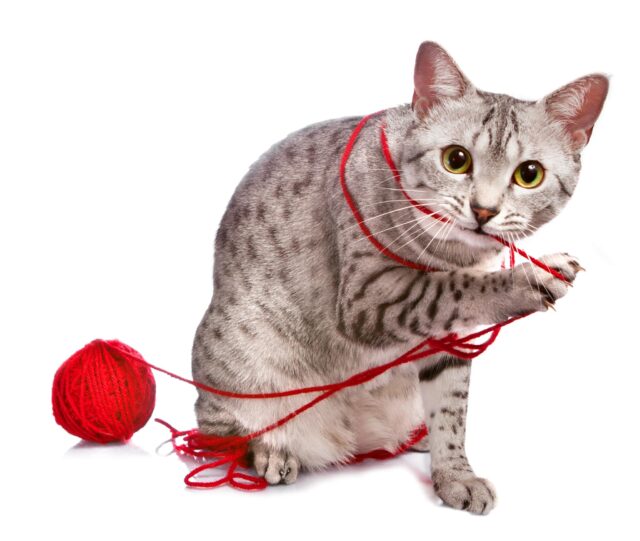
What Are The Benefits or Downsides of Using a Cat DNA Test?
Cat DNA tests offer both advantages and limitations that cat owners should consider before investing in one.
Benefits:
- Early Detection of Health Risks: Identifying genetic markers for specific health conditions can allow for early intervention or preventive care, potentially extending the quality and length of your cat’s life.
- Understanding Behavior: Knowing the breeds that make up your cat can help you understand certain behaviors, traits, or predispositions, making it easier to train and care for your pet.
- Nutritional Guidance: While not a replacement for veterinary advice, some DNA tests offer dietary recommendations based on your cat’s genetic makeup, which can supplement your existing feeding regimen.
- Breeding Insights: For those interested in breeding, DNA tests can indicate whether your cat is a carrier for certain genetic disorders, helping to inform responsible breeding practices.
- Emotional Satisfaction: Many pet owners find it emotionally rewarding to know more about their pet’s ancestry and genetic makeup, creating a deeper bond between owner and pet.
Downsides:
- Cost: DNA tests for cats can be expensive, ranging from around $70 to $200 or more, depending on the comprehensiveness of the test.
- Accuracy: While these tests are generally reliable, they are not 100% accurate. Small errors or limitations in the database can occur, affecting the results.
- Not a Substitute for Veterinary Care: While a DNA test can provide a lot of information, it should not replace regular veterinary check-ups and diagnostics. Some conditions require more than genetic markers for diagnosis.
- Ethical Concerns: Some people have ethical reservations about genetic testing, especially if it could lead to discrimination against certain breeds or conditions.
- Overwhelming or Anxiety: Too much information, especially about potential health risks, can be overwhelming or cause undue worry for some pet owners.
In summary, cat DNA tests can offer valuable insights into your feline’s health and heritage, but they are not without limitations. Always consult with your veterinarian to interpret the results and decide on appropriate next steps for care or treatment.

Frequently Asked Questions About Cat DNA Tests
1. What is a Cat DNA Test?
A cat DNA test is a genetic screening procedure that analyzes your cat’s DNA to provide various insights, including breed identification, health predispositions, and traits. It typically involves taking a cheek swab from your cat and sending it to a laboratory for analysis. The results are usually available within a few weeks.
2. How accurate are Cat DNA Tests?
While generally reliable, the accuracy of cat DNA tests can vary depending on the company and the size of their breed database. Most tests have an accuracy rate of over 90% for breed identification, but the reliability may be lower for rare breeds or for predicting health risks.
3. How can I use the information from a Cat DNA Test?
The information can be used for a variety of purposes, including understanding your cat’s behavior, potential health risks, and dietary needs. It can also be valuable for breeding considerations. However, this information should supplement, not replace, regular veterinary care.
4. Are there any risks associated with taking a DNA sample from my cat?
Taking a DNA sample is generally low-risk and involves a simple cheek swab. However, if your cat is particularly stressed or agitated by the procedure, it may cause temporary stress. Always follow the guidelines provided in the DNA test kit for the safest and most effective sampling.
5. Can a Cat DNA Test tell me what food is best for my cat?
While some cat DNA tests offer nutritional guidance based on genetic markers, these are general recommendations and should not replace personalized dietary advice from your veterinarian. Always consult your vet for the most appropriate diet for your cat.
6. How long will it take to get the results?
The timeframe for receiving results varies by company but generally ranges from 2 to 8 weeks. Some companies offer expedited services for an additional fee.
7. Can a Cat DNA Test identify medical conditions?
Many cat DNA tests can identify genetic predispositions to certain medical conditions, but they cannot diagnose a condition. If the test indicates a potential risk, consult your veterinarian for further evaluation and treatment.
8. Is a Cat DNA Test a one-time procedure?
Yes, DNA does not change over time, so a DNA test is a one-time procedure that provides lifetime information about your cat’s genetic makeup.
9. Will a Cat DNA Test show if my cat is purebred?
If your cat is a purebred, a DNA test with a comprehensive breed database should be able to confirm this. However, be aware that no test is 100% accurate, and results may vary slightly based on the database’s completeness for that breed.
10. Are Cat DNA Tests ethical?
The ethics of cat DNA testing are generally considered benign, as they offer insights that can improve the health and well-being of your pet. However, some people have ethical concerns about potential discrimination against certain breeds or conditions identified through genetic screening.
Conclusion: Best Cat DNA Tests
Choosing the right DNA test for your cat can offer invaluable insights into their health, ancestry, and unique characteristics. Not only can you discover the fascinating history of your feline friend, but you can also take proactive steps to manage potential health risks identified through genetic screening. While it’s important to remember that DNA testing is not a substitute for regular veterinary care, it can certainly complement it by offering a more comprehensive understanding of your cat’s needs. With an array of tests available, there’s something to suit every curious cat owner’s questions.

